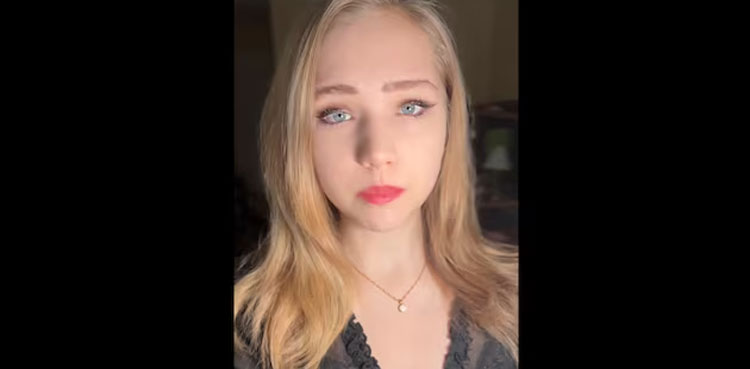
On his public journey to embracing Germany’s far-right Alternative for Germany (AfD), Elon Musk has frequently amplified the online content of one young supporter of the party – climate change and COVID-19 lockdown sceptic Naomi Seibt.
Shortly after polls closed in June for the European Parliament elections, in which the AfD performed strongly, Seibt announced that she had voted for the party in a post to her tens of thousands of followers on X, Musk’s social media platform. An hour later, Musk responded with a question.
“Why is there such a negative reaction from some about AfD?” the Tesla chief executive asked in a public reply. He followed up with a private message asking for more details, Seibt told Reuters in an interview. Reuters has not seen the private message.
“I explained to him the AfD is not similar to the Nazi ideology or Hitler, but is like the 19th century liberal nationalist movement … because they wanted to be free from authoritarians in their own territory,” said the 24-year-old, who posts in English, describing their private exchange.
The billionaire entrepreneur responded with a humorous Roman Empire-themed meme, said Naomi Seibt, who has around 368,000 followers on X.
Since asking Naomi Seibt about the AfD in June, Musk has engaged publicly with the self-professed libertarian more than 40 times, following two previous engagements with her on the platform earlier that year, putting her among a small group of European influencers whose content he has heavily interacted with in recent months, according to a Reuters review of his posts on X.
Musk, who has more than 211 million followers on the platform, did not respond to requests for comment for this story. Reuters could not establish how influential Seibt’s content has been on his thinking.
Naomi Seibt, who rose to prominence several years ago posting content to counter climate activist Greta Thunberg, said Musk has sent her a handful direct messages asking about German politics in the same period. Reuters has not seen these posts.
By December, Musk’s public support for the AfD was explicit, with his public posts saying the party would “save” Germany. Later on Thursday, he plans to interview on X Alice Weidel, the party’s leader and candidate to be Germany’s chancellor in general elections scheduled for Feb. 23.
The AfD contains a range of conservative ideologies. It is running second in polls ahead of the elections, called after the collapse of Chancellor Olaf Scholz’s three-way coalition. Mainstream parties have said they will not work with the party, founded in 2013 and classified by Germany’s domestic security service as a “suspected extremist organisation.”
In recent years, the AfD consolidated around a populist anti-Islam worldview opposed to immigration. It wants to dissolve the EU and replace it with a looser trade bloc, and to stop arming Ukraine.
It is also focused on ending Germany’s policy of atonement for World War Two crimes. Its leading candidate for the European Parliament election resigned from the party in May amid public outcry, after declaring that members of the SS, the Nazis’ main paramilitary force, were “not all criminals”.
Ned Richardson-Little, a historian at the Leibniz Centre for Contemporary History Potsdam, said that while they were historically different parties, the AfD did share with the Nazis “a focus on recapturing a mythical lost glory of the German nation” while scapegoating minorities and railing against elites.
Germany’s weak economy together with anxiety over immigration and war in Europe has tainted voters’ view of mainstream parties, helping the AfD’s standings in the polls.
The AfD did not respond to a request for comment.
Musk’s public interest in German and British politics has intensified since the November U.S. election, in which he spent quarter of a billion dollars to help Donald Trump return to the White House.
Musk has made no secret of his desire to see a similar shakeup of the political order across Europe, provoking outrage from some leaders across the continent, including in Germany where he has a car factory that employs thousands.
Reuters could not establish to what extent he is acting at the behest of Trump, who has appointed him the joint head of a new government efficiency department. On Tuesday, the president-elect said “Elon’s doing a good job” when asked for his reaction to Musk’s statements about foreign affairs in Europe and elsewhere.
“DON’T SOUND EXTREMIST”
The first Musk post that Reuters could find containing a mention of the AdD came in September 2023, when he retweeted a post from an Italian far-right media outlet that talked favourably about the party. After an online backlash, two days after that he posted that he personally didn’t support any party and didn’t know the AfD “from a hole in the ground.”
According to a review of subsequent posts on the platform, Musk doesn’t appear to have mentioned the AfD again until his June 9 reply to Naomi Seibt’s post declaring her vote for the party, in which he said he had been reading up, and that the party’s policies “don’t sound extremist.”
Six months later, his views had crystallized.
Between June and December, Musk mentioned the AfD twice in tweets, relating to an attempt in Germany to ban the party.
Then, on Dec. 20, Musk posted again, responding to Seibt, and said: “Only the AfD can save Germany.”
The post retweeted a video by Seibt, in which she pilloried the German election frontrunner Friedrich Merz for criticising Musk.
The post was on the same day as a car-ramming attack that killed six at a Christmas market, carried out by a Saudi-born man with strong anti-Islam views who expressed support for the AfD and Musk in online messages but whose motives remain unclear.
Since the Dec. 20 post, Musk has mentioned the AfD by name at least six times in tweets and has interacted with Seibt more than a dozen times on the platform, mainly about German politics.
Later in December, he doubled down on support for the AfD in a column in a German newspaper, saying it was wrong to call it far-right or compare it to Hitler, because Weidel, the party’s Mandarin-speaking leader, is raising children with a same sex partner born in Sri Lanka.
Seibt told Reuters that based on their conversations, she believed that when Musk asked about the AfD on X he had already researched the issue. “That’s not something that’s come from nowhere,” she said.
His embrace of the AfD has coincided with a series of attacks on Brtain’s government and support for increasingly fringe members of that country’s right-wing.
Over the past weeks, he has reignited debate around a British child sex scandal, calling a female minister an apologist for “rape genocide” against white girls and picking a fight with his recent ally Nigel Farage over Musk’s support for imprisoned hard-right leader Tommy Robinson.
“ERADICATE GERMAN GUILT”
Seibt’s posts often match Musk’s talking points, including in recent days the support for Robinson. Her videos are peppered with praise for X along with a catchphrase popular with Musk – “the woke mind virus.”
In two posts on X this week about the British child sex scandal, resurfaced by Musk’s attacks on the Labour government and his support for Robinson, Seibt said she had been a victim of sexual abuse and grooming as a child. Reuters has not verified those comments.
Seibt says she is not far-right but votes for the AfD so that it can tackle immigration.
“I want to eradicate all this German guilt,” she added, referring to the German culture of atonement for Nazi crimes, including the Holocaust of Europe’s Jews. “I didn’t do anything that allegedly my ancestors did,” she said.
Seibt is currently travelling in the U.S. in the run-up to Trump’s Jan. 20 inauguration, crashing at the homes of other political influencers on X, she said.
She hopes to attend inauguration as the “plus one” of another influencer, Nick Sortor, she said. There, she hopes to finally meet Musk in person. Trump’s transition team and Sortor did not immediately respond to requests for comment.
Seibt has been a prominent figure in right-wing social media since her schooldays in the German university town of Muenster. As a child she was plagued by ill-health and never knew her father, she said.
Seibt has dedicated herself to online activism since dropping out of university after one semester of economics, she said.
In 2019, she met British climate sceptic Christopher Monckton who connected her with the Heartland Institute, a U.S.-based think tank that has worked on climate change denial and cast doubt on the harm caused by passive smoking.
Heartland paid her $4,000 a month for three months, in what she described as a scholarship, she said. Heartland did not respond to a request for comment.
Musk’s takeover of X has helped elevate her profile.
“When I saw in 2022 that Twitter was being bought by Elon, I didn’t know what was going to happen,” she said. “But I knew one thing: I could trust this Elon Musk guy.”
from Science and Technology News - Latest science and technology news https://ift.tt/Gxpk4h0


0 Comments